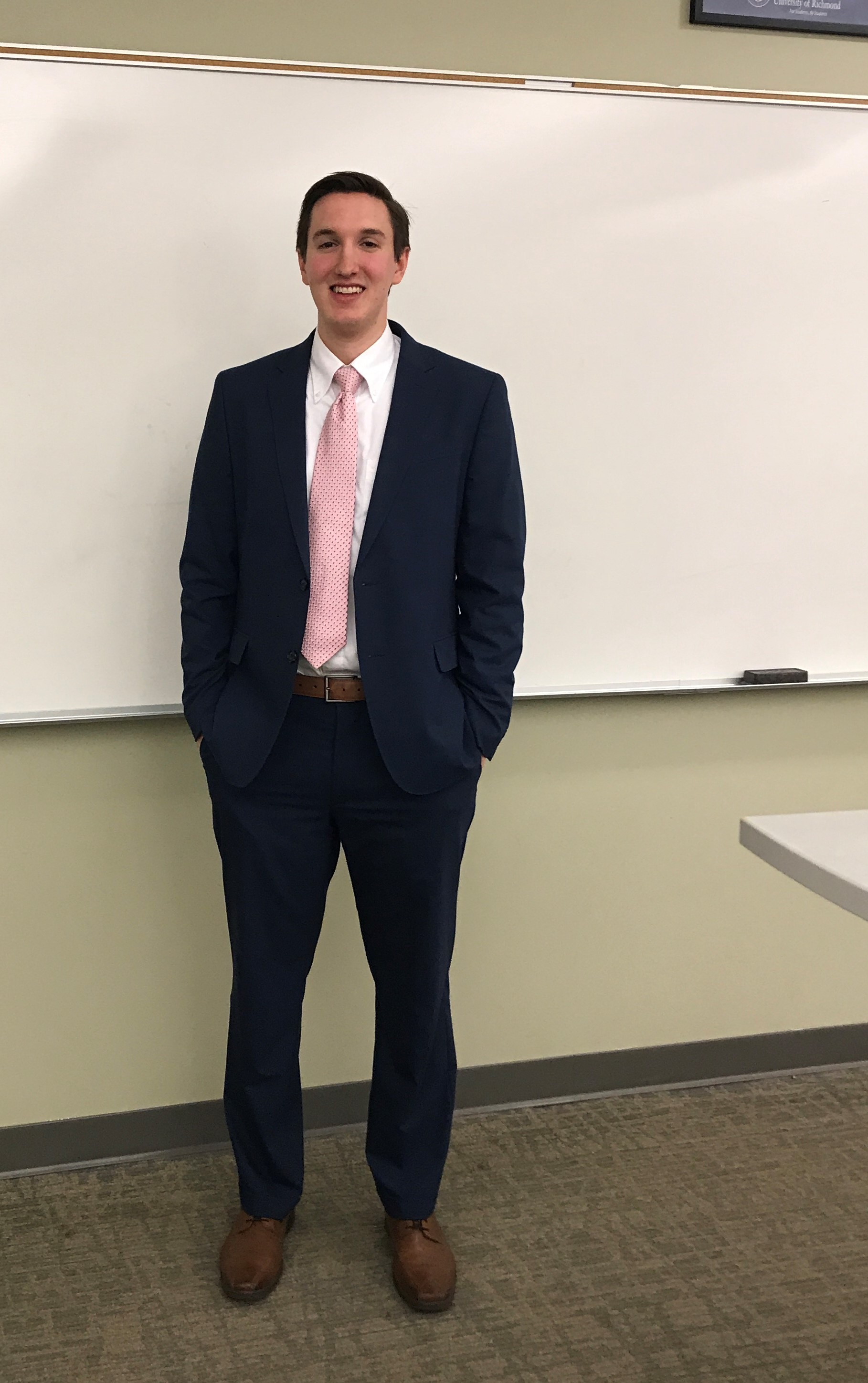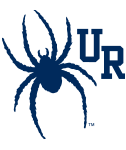And the second (and last) 2020 graduate of the Pollock lab is chemistry major Joseph McEachon. Joseph joined the research lab during his first year at UR. I like to say that he was chosen to join the lab for 2 main reasons: 1) He is a man and the rest of the lab members were women so we were trying to diversify and 2) He is tall and we needed someone to reach the top shelves without a stool. Of course, the reality is that Joseph was enthusiastic about research especially at the interface of medicine and bench science. I was looking for a new student to take over for Hyejin Park (BMB ’16) in characterization of the boronic ester estrogens. During that first summer, Joseph was basically testing every instrument in the building to figure out how to do just that. He got a brand new HPLC up and running and spent a lot of time in the Hamm lab running temperature controlled UV-Vis experiments. It was the day when he ventured to the analysis lab with Dr. Kellogg to titrate our bottle of hydrogen peroxide that I knew he was going to be a chemistry major. Joseph has flourished in the research lab taking the project to publication and then expanding into cell culture experiments that he essentially designed himself and replicating some organic synthesis by Hyejin. In addition, he has spent a lot of his time working as a scribe at a local hospital. Let’s see how he reflects on his time:
Q1. Why did you decide to join the Pollock lab?
Joseph: I joined the Pollock lab during my freshman year after receiving advice from a mentor to join a lab early in my college career. After meeting with multiple professors, I decided on the Pollock lab since it had a variety of research projects that I could work on throughout my time in the lab. After our initial meeting, Dr. Pollock also supplied me with reading material on background studies for some of the projects in her lab so that I could have a better understanding of the research projects that I would be joining. Lastly, as a pre-med, I also found the lab’s research on breast cancer and estrogen receptor to be particularly interesting and relevant to my future medical studies.
Q2. What was your favorite part about your research experience?
Joseph: My favorite part about the research experience is lining up theory with experimental data. For me, this was characterizing the conversion of our masked drug to its active form and the subsequent kinetics. We had a proposed mechanism and reagents and it was time for us to see if it would work for our compound.
Q3. What do you plan to do after graduation?
Joseph: After graduation I will be attending a 1-year Master’s Program in Biomedical Science at the Edward Via College of Osteopathic Medicine (VCOM) in Blacksburg, VA with the goal of direct matriculation into their medical school the following year.
Q4. As you reflect back on your time at University of Richmond, what advice would you give to an incoming student who was interested in your career path?
Joseph: The greatest advice I could give someone who is pursuing a career in medicine is to gain experience. Whether that is achieved through ample shadowing opportunities or a job, in my opinion, there is simply no substitution for it. For me, this was taking a job as a medical scribe in the emergency department where I was able to see a little bit of every specialty in medicine and see the not so glamorous side of medicine. Along the way, it is also possible to meet some mentors who are willing to help you reach your goal.
Joseph – Thank you for coming into the lab and jumping head first into my first research idea. When we published our paper, and got the cover art, I was so proud of the work that you and Hyejin accomplished! You will thrive at VCOM in their master’s program and medical school. I can’t wait to see what type of doctor you will become. You won’t be far away so please come and visit anytime. Keep in touch, keep working hard, and keep your positive spirit! Congratulations!
~jap


This fella’s going places! Congrats, future Dr. McEachon!